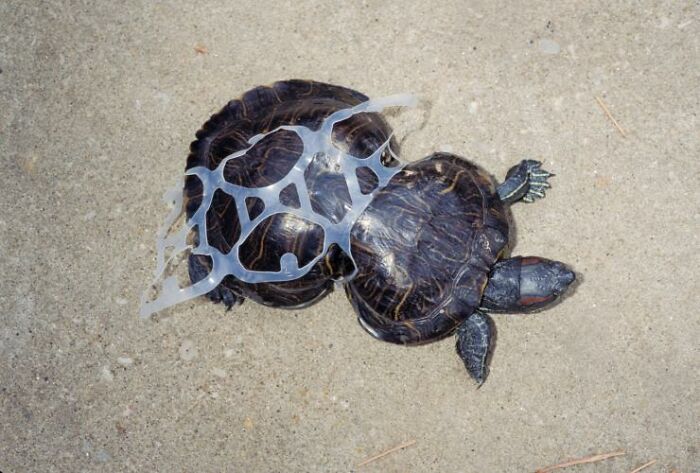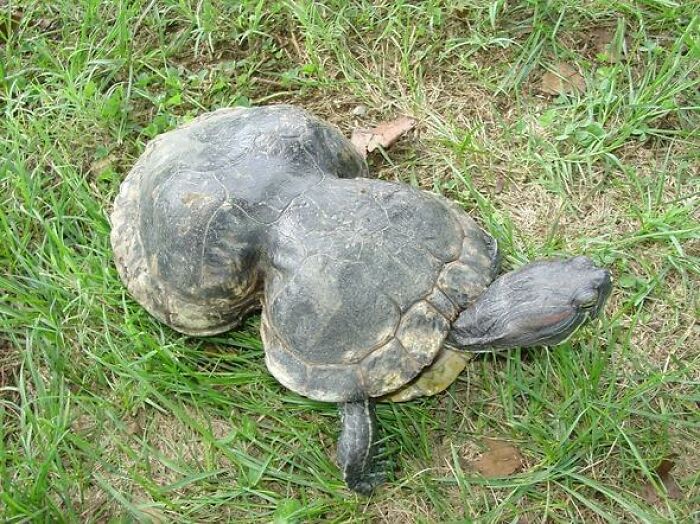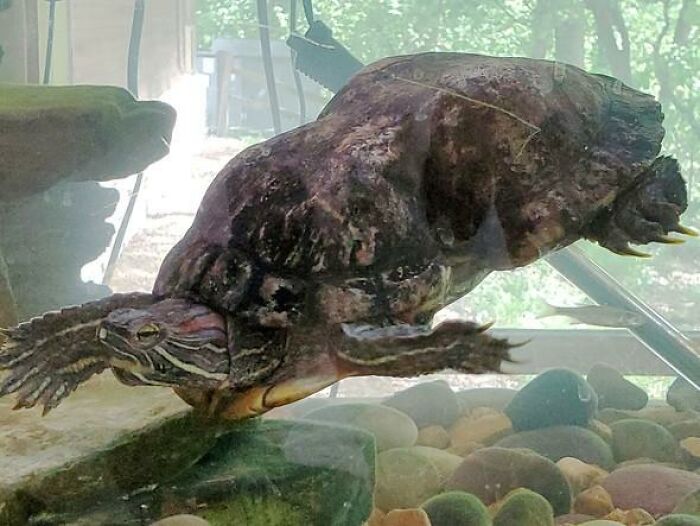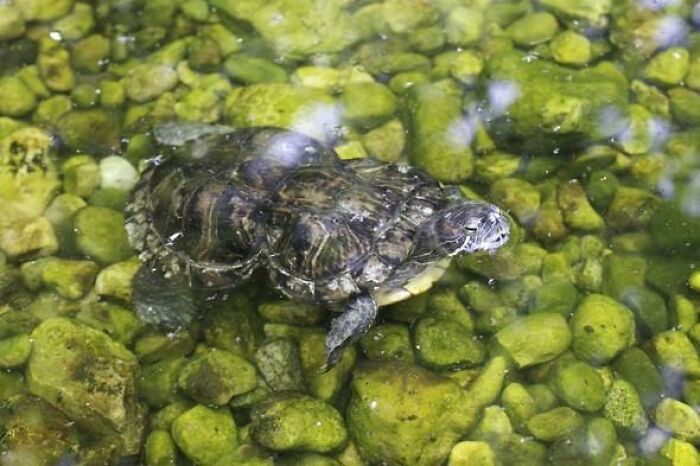Despite mankind’s best efforts to destroy it, nature never ceases to amaze. Plants and animals fight for survival no matter the odds, constantly reminding us that life always finds a way, despite both natural and unnatural challenges.
A turtle named Peanut is a shining example of nature’s tenacity. Ensnared by a plastic six-pack ring for years, this remarkable creature, rescued in the early 90s, recently celebrated her 41st birthday, and appears to be doing better than ever.
Peanut the turtle had a rough start to life when she got helplessly entangled in a plastic six-pack ring

The ring constricted her growing body as she grew up, leading to her having a misshapen shell
Sometime in the early 80s, a red-eared slider turtle hatched in the wilds of Missouri. As she set out on her precarious journey, her future was in the hands of Mother Nature, and fate. As it turned out, it wasn’t long before her life changed forever, not because of natural predators or disease, but rather a piece of carelessly discarded trash.
Despite the young turtle’s shell becoming entangled in the plastic ring of a six-pack holder, she somehow managed to eke out an existence. However, as she grew up, her body was cinched in the middle, turning every day into a struggle for survival. Fortunately, hope arrived in the early 90s when she was found and cut free.

When she was found in the early 90s and cut free, her rescuers were unsure of her chances of long-term survival
Ever since then, the turtle, since dubbed “Peanut”, has lived under the protection of the Missouri Department of Conservation (MDC). Deemed unfit to return to the wild, the plucky creature has spent the decades since her miraculous rescue serving as a symbol of the dangers of littering.
“People see her and learn her story, and they get it,” says Amy Wilkinson, Peanut’s handler from the MDC. “She is used in litter campaigns throughout the world.”
Even with the plastic ring removed, speculation was still rife about how long Peanut could survive with her body permanently disfigured. In early 2020, she underwent surgery after staff noticed she was losing her appetite. Fortunately, the robust little reptile pulled through without any health complaints or complications.

The MDC recently threw a public party celebrating Peanut’s 41st birthday, tagging her a “litter-fighting superhero.” Today, the tenacious turtle is thriving while teaching the world a critical lesson about the perils of plastic pollution. “She’s not a teenager anymore,” Peanut’s caretakers note. “But her mighty message continues to remind people to put litter in its place.”

Deemed unfit to return to the wild, Peanut has since been looked after by the kind folks at the Missouri Department of Conservation
Peanut has been featured in numerous TV stories and newspaper articles, made public appearances at venues like the Missouri State Fair, and even been highlighted internationally on several websites. Her mutation might not have come about from a mutagenic ooze, but she’s been a real deal trash basher for 40 years.

Every year, an estimated 11 million metric tons of plastic waste enter the ocean, and that number could nearly triple by 2040 if no action is taken. Rivers act as highways for plastic, funneling discarded bottles, bags, and microplastics into the seas, especially in regions with weak waste management systems.
Once in waterways, plastic fragments turn into microplastics, which can be ingested by marine life, some of which we consume. Sea turtles often mistake plastic bags for jellyfish, seabirds feed bottle caps to their chicks, and whales have been found with stomachs full of plastic debris.
Sadly, not all creatures affected by plastic pollution will end up saved like Peanut was, but at least she’s playing a big part in taking on trash.
Still going strong 30 years after her rescue, Peanut has become a trash-tackling icon, and recently celebrated her 41st birthday to much fanfare
















